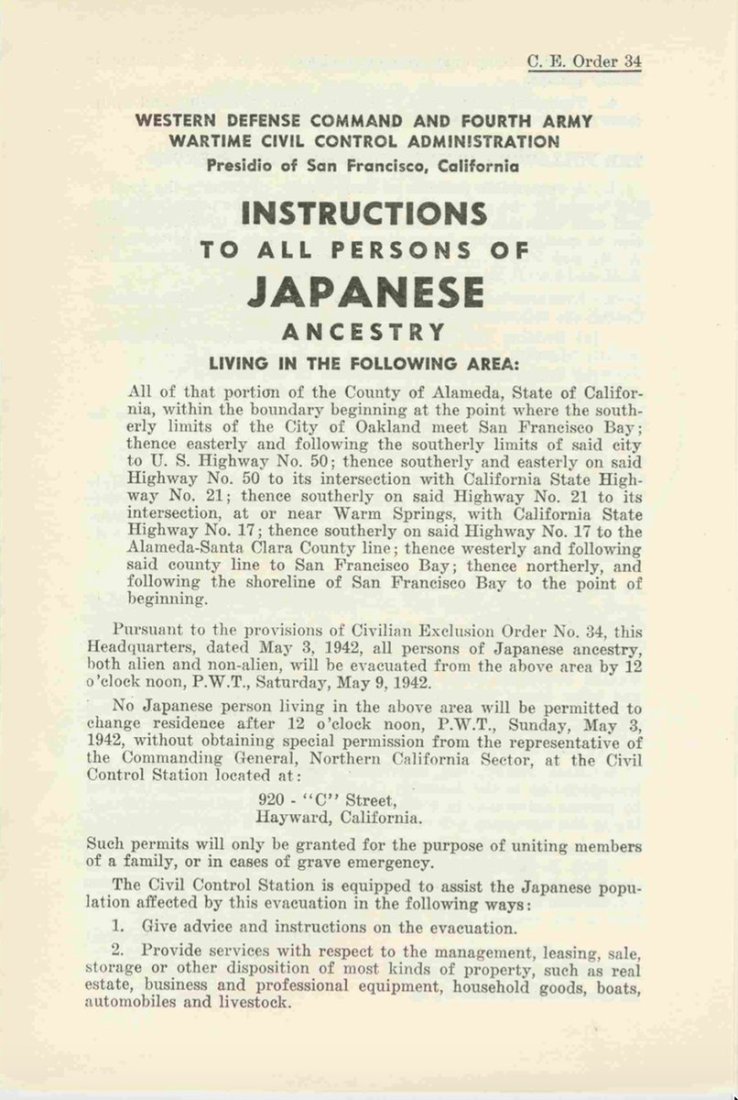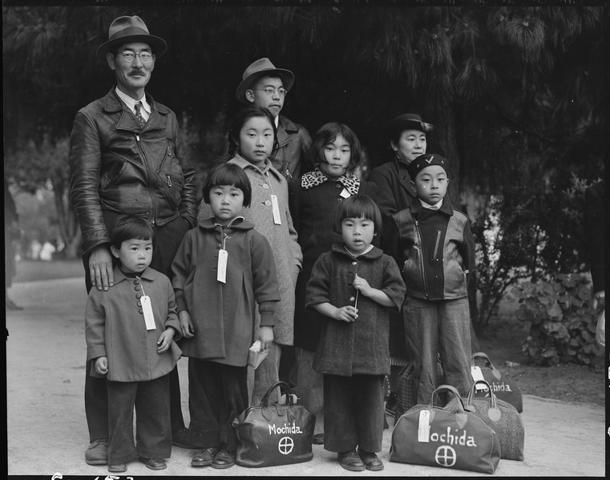
It is said that we are dealing here with the case of imprisonment of a citizen in a concentration camp solely because of his ancestry, without evidence or inquiry concerning his loyalty and good disposition towards the United States. Our task would be simple, our duty clear, were this a case involving the imprisonment of a loyal citizen in a concentration camp because of racial prejudice. Regardless of the true nature of the assembly and relocation centers—and we deem it unjustifiable to call them concentration camps, with all the ugly connotations that term implies—we are dealing specifically with nothing but an exclusion order. To cast this case into outlines of racial prejudice, without reference to the real military dangers which were presented, merely confuses the issue. Korematsu was not excluded from the Military Area because of hostility to him or his race. He was excluded because we are at war with the Japanese Empire, because the properly constituted military authorities feared an invasion of our West Coast and felt constrained to take proper security measures, because they decided that the military urgency of the situation demanded that all citizens of Japanese ancestry be segregated from the West Coast temporarily, and, finally, because Congress, reposing its confidence in this time of war in our military leaders—as inevitably it must—determined that they should have the power to do just this. There was evidence of disloyalty on the part of some, the military authorities considered that the need for action was great, and time was short. We cannot—by availing ourselves of the calm perspective of hindsight—now say that, at that time, these actions were unjustified.
-Justice Black, Korematsu v. United States, 323 U.S. 214 (1944)
Racial discrimination in any form and in any degree has no justifiable part whatever in our democratic way of life. It is unattractive in any setting, but it is utterly revolting among a free people who have embraced the principles set forth in the Constitution of the United States. All residents of this nation are kin in some way by blood or culture to a foreign land. Yet they are primarily and necessarily a part of the new and distinct civilization of the United States. They must, accordingly, be treated at all times as the heirs of the American experiment, and as entitled to all the rights and freedoms guaranteed by the Constitution.
-Justice Murphy, Korematsu v. United States, 323 U.S. 214 (1944)
My duties as a justice, as I see them, do not require me to make a military judgment as to whether General DeWitt’s evacuation and detention program was a reasonable military necessity. I do not suggest that the courts should have attempted to interfere with the Army in carrying out its task. But I do not think they may be asked to execute a military expedient that has no place in law under the Constitution.
-Justice Jackson, Korematsu v. United States, 323 U.S. 214 (1944)
The forcible relocation of U. S. citizens to concentration camps, solely and explicitly on the basis of race, is objectively unlawful and outside the scope of Presidential authority. But it is wholly inapt to liken that morally repugnant order to a facially neutral policy denying certain foreign nationals the privilege of admission. . . . The entry suspension is an act that is well within executive authority and could have been taken by any other President—the only question is evaluating the actions of this particular President in promulgating an otherwise valid Proclamation.
The dissent’s reference to Korematsu, however, affords this Court the opportunity to make express what is already obvious: Korematsu was gravely wrong the day it was decided, has been overruled in the court of history, and—to be clear—“has no place in law under the Constitution.”
-Chief Justice Roberts, Trump v. Hawaii, 585 U. S. ____ (2018)
Today, the Court takes the important step of finally overruling Korematsu, denouncing it as “gravely wrong the day it was decided.” This formal repudiation of a shameful precedent is laudable and long overdue. But it does not make the majority’s decision here acceptable or right. By blindly accepting the Government’s misguided invitation to sanction a discriminatory policy motivated by animosity toward a disfavored group, all in the name of a superficial claim of national security, the Court redeploys the same dangerous logic underlying Korematsu and merely replaces one “gravely wrong” decision with another.
Justice Sotomayor, Trump v. Hawaii, 585 U. S. ____ (2018)
